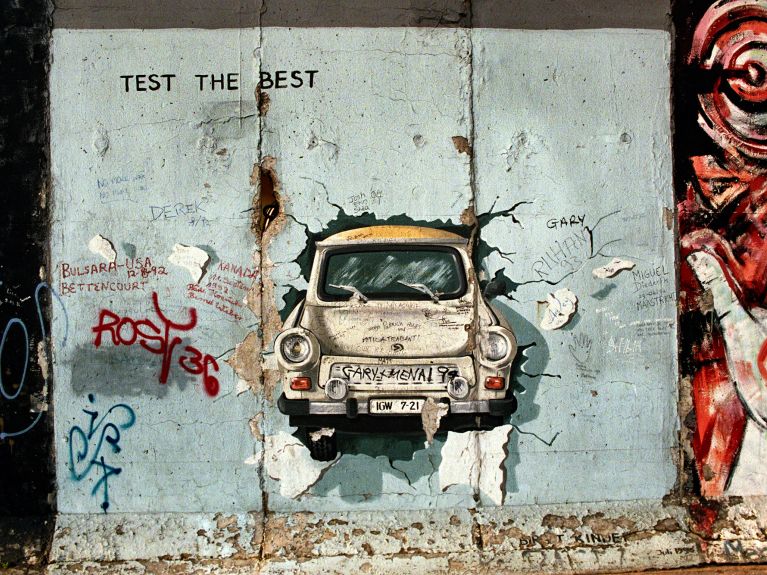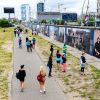Growing together
Stefan was born two years before the fall of the Berlin Wall. Although he grew up in united Germany, he can still see traces of the old division today.

The Wall never played a particular role in my life. Although I was born and grew up in East Berlin, the Wall was of no real significance. But during my studies in West Berlin, I was always seen as the ‘Ossi’. I quite liked that. I felt comfortable in the role of the proletarian north-eastern Berliner. The underlying vibes of local patriotism could still be felt for a long time.
The West set the standards, the East had to adapt
I have the feeling that the West laid out the road map after the turning point in 1989 and the East had to adapt. That was probably because the West Germans had already been federal citizens for a lot longer than the East Germans. You’d think that such things would no longer play much of a role after 30 years, but that’s not true.
During the last regional elections, I supported my party colleagues from Die Linke (the Left Party) in Saxony. We experienced a huge decline in the good infrastructure there, for instance the loss of useful railway connections in rural areas. The inhabitants are very annoyed, and they still feel they’ve been left behind.
The political situation is different in East and West
The political situation in the East is different from that in the West. We currently have far more right-wing voters in eastern Germany than in the West. Of course, this isn’t a direct result of the fall of the Wall, but the years following the turning point certainly contributed towards this trend.
We need to grow together, rather than laying out the road map for others.
In order to solve these problems, politicians and citizens have to be more responsive to the needs of the East Germans. In my opinion, massive investments in the infrastructure and a harmonization of structural inequalities would be good for a start. But we need to do a lot more in order to permanently overcome the differences between East and West.
Growing together, rather than laying out a specific road map for others. I think this is the only way that we can achieve real unity amongst the people in Germany.
You would like to receive regular information about Germany?
Subscribe here:


